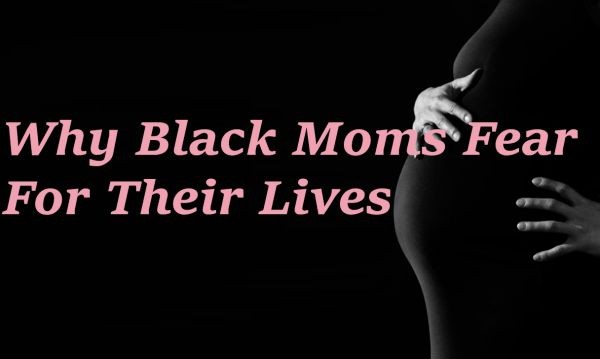I have given birth three times in the past four years, each time in a different hospital with a very different experience. A year or so after my first child was born a friend sent me an NPR feature on traumatic child birth in the US, and I wasn’t surprised to see the hospital where I had my first featured in it. I discovered that those moms on Medicaid (like I was), but most especially black and brown women had received lackluster to terrible care in that hospital. Still trying to understand why I had been treated the way I was there, I started to look a little deeper into the issues pregnant women face in the US today.
The US currently has the largest percentage of maternal deaths in the developed world. Whereas the rates in other countries are consistently on the decline, the US rate is actually RISING, and currently sits at 26.4 deaths per 100,000 live births. In comparison, the UK is at 9.2 deaths per 100,000 live births and Finland at 3.8. But there is an even darker side to this problem, one that makes it clearly obvious that we have a long way to go before we have reached the so-called “post-racial” era that some seem to believe we live in. According to several recent and also not-so-recent studies, black women are three to four times more likely to die in childbirth than non-Hispanic white women. This means that while the current average in the US is 26.4 deaths per 100,000 live births, it is actually 44 deaths per 100,000 for black women. (The maternal mortality rate in Mexico currently lies at 38 deaths per 100,000 if you would like to compare numbers).
The New York Times recently published an excellent feature on the racial disparities in regards to childbirth in the US, and I personally believe that this is a huge issue that we need to focus on. I have seen far too many people try to explain the disparities away with “acceptable excuses” such as weight, eating habits, and other ridiculous notions, but to understand and then effectively rectify maternal mortality disparities we need to remove preconceived biases and actually read and act on the mountains of research that has been done on the topic. Independent studies show that the racial disparity has nothing to do with class lines, wealth/poverty, or education. For example, just recently Serena Williams told Vogue about her horrifying near-death experience after childbirth which could have been avoided if her medical professionals had just listened to her concerns. If someone like Serena Williams can’t get a doctor to listen to her, then we can only imagine what it’s like for black women who aren’t household names.
Why are we not looking into how black women are looked after during their prenatal care and if their concerns are followed up on? Why are we not rolling out nurse home visits to postpartum mothers instead of checking them out of hospital and telling them to follow up with their doctor in 6 weeks? One in four women go back to work within two weeks of giving birth in the US, leaving no time for proper healing or bonding, or even scheduling check-ups with their doctors. We also need to dig deeper into the underlying causes of this racial disparity and look at the systemic societal racism that plagues this country and how it has effected black women for generations, in parallel with the racial bias that black women continuously face from medical professionals. Research tells us that the chronic stress that black women endure in their day to day life due to societal racism has a deep impact on their bodies, and this seems to cause systemic issues in their pregnancies. (Studies on low birth weight and chronic exposure to discrimination tell us a lot about this).
We should be very concerned that the racial disparity between black and white infant deaths is wider than it was in 1850, only a few years after the abolition of slavery. We should be very concerned that black women are three or four times more likely than white women to die from childbirth related causes. In 2014 the US was asked by the UN Committee in the Elimination of Racial Discrimination to address the causes of this racial disparity in maternal deaths, and still today no real steps have been taken to push for change. Non-profit doula collectives, certain senators and congresspeople, and other regional or state-wide entities are working tirelessly to lower the racial disparity, but as long as we don’t see this as the human rights issue that it is, those 44 deaths per 100,000 will not go down.
While the racial disparity is exceptionally high for black women, other women of color, especially immigrant women, also feel the effects of racial discrimination in US healthcare. The numbers don’t lie: we need to work much, much harder on creating a safer environment for women of color in general.
Did you feel like you were undermined, treated badly, or dismissed while pregnant or during childbirth?


